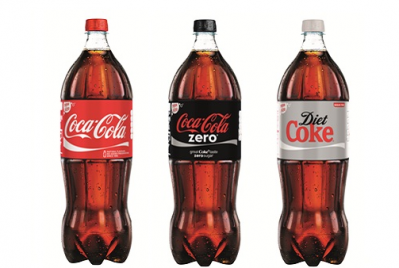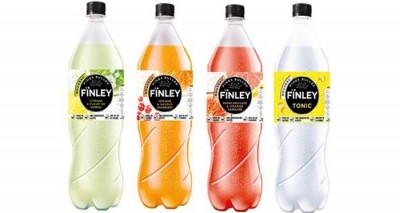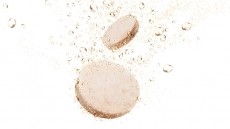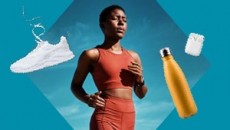CEO JOHN BROCK 'guardedly optimistic' on aspartame's EU future
‘We’re in a better place on aspartame’: Coca-Cola Enterprises boss unshaken by US diet soda slide

The company’s Q1 2014 results released yesterday reveals sales volumes down 1.5%, with a worrying 9% slide in CCE’s largest market, Great Britain, offsetting 3.5% growth in continental Europe.
“In Great Britain, our results were affected by a particularly competitive environment, the transition in the home channel from a 2-liter straight-wall bottle to contour 1.75-liter bottles and wet weather early in the quarter,” Brock said.
Defending the introduction of the 1.75L PET bottle last March, Brock said it had been well-received, provided value for customers, marketplace differentiation and “increased pricing flexibility”, which may or may not mean that retailers are now charging the same price for 250ml less soda.
‘Unequivocal’ EFSA opinion reassured consumers
Hubert Patricot executive VP and president of the company’s European group, added that the switch to 1.75L had affected CCE’s ability to run promotions – vis-à-vis competitors, the largest of which is Pepsi bottler Britvic – and impacted customer stock levels.
But he said the 1.75L introduction was part of CCE’s “long-term strategy to broaden our PET repertoire in Great Britain”, adding that a 1L bottle and a 1.5L four-pack will also launch in Q2.
William Schmitz, Deutsche Bank research division, asked Brock, how confident he was that CCE was largely immune to “some of the issues that the US is facing with aspartame” in Europe, since the firm uses aspartame across its diet soda portfolio.
“I wouldn’t say we’re immune to them, Bill. But I think we’re in a better place,” Brock replied. (Diet Coke sales fell 6.8% in the US in 2013, according to Beverage Digest while Diet Pepsi sales tumbled 6.9%.)
“The European Food Safety Authority (EFSA) back last fall, which said unequivocally aspartame is safe, has made a meaningful difference, I think, both to NGOs, to governments and even to consumers,” he added.
‘Is aspartame bad?’ trends down on Google UK
Even within industry circles, ‘aspartame’ is a dirty word for some in the States (more as a victim of poor consumer perceptions than anything else) but on December 10 EFSA concluded – following a scientific review – that aspartame and it’s breakdown products are safe for human consumption at current exposure levels.
“Following a thorough review provided both by animal and human studies, experts have ruled out the potential risk of aspartame causing damage to genes and inducing cancer,” EFSA’s Panel on Food Additives and Nutrient Sources Added to Foods (ANS Panel) concluded.
While he admitted that the climate on aspartame was a continuing issue for CCE in Europe, Brock said the company was “guardedly optimistic about the future”.
US interest in aspartame persists, but dips in the UK...
(His optimism seems to be backed by Google Trends data, which is to an extent indicative of consumer, industry and government interest in aspartame. The numbers on the two charts in this article reflect how many searches have been done for 'is aspartame bad', relative to the highest point on the chart, which the number 100 reflects.)
The high intensity sweetener continues to score highly in US searches and has done since 2009 (see chart above); interest peaked in April 2013, perhaps coinciding with EFSA's announcement that it would review 200+ comments received during a public consultation on a draft scientific opinion on aspartame published in 2013.
Conversely, the frequency of searches has fallen off dramatically in the UK - see chart below, after a frenzy of interest from February 2013.
That said, although Brock emphasizes growth in CCE’s diet portfolio last year, and bullishly predicts growth for FY 2014, diet sales were down year-on-year in Q1.
Patricot conceded that, despite double-digit growth for Coke Zero, Diet Coke sales fell during Q1 2014, and the diet portfolio declined 1.5% overall.













